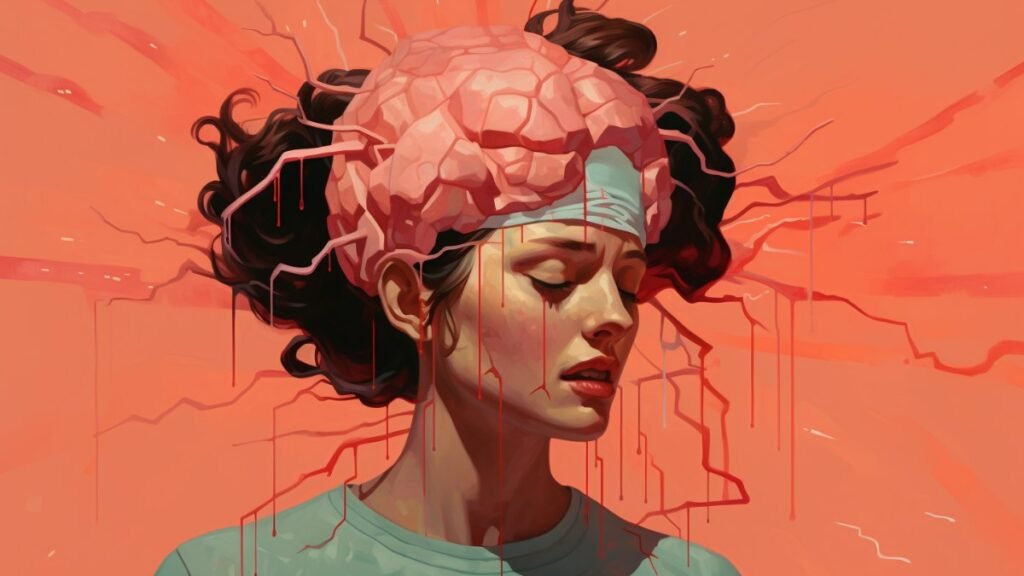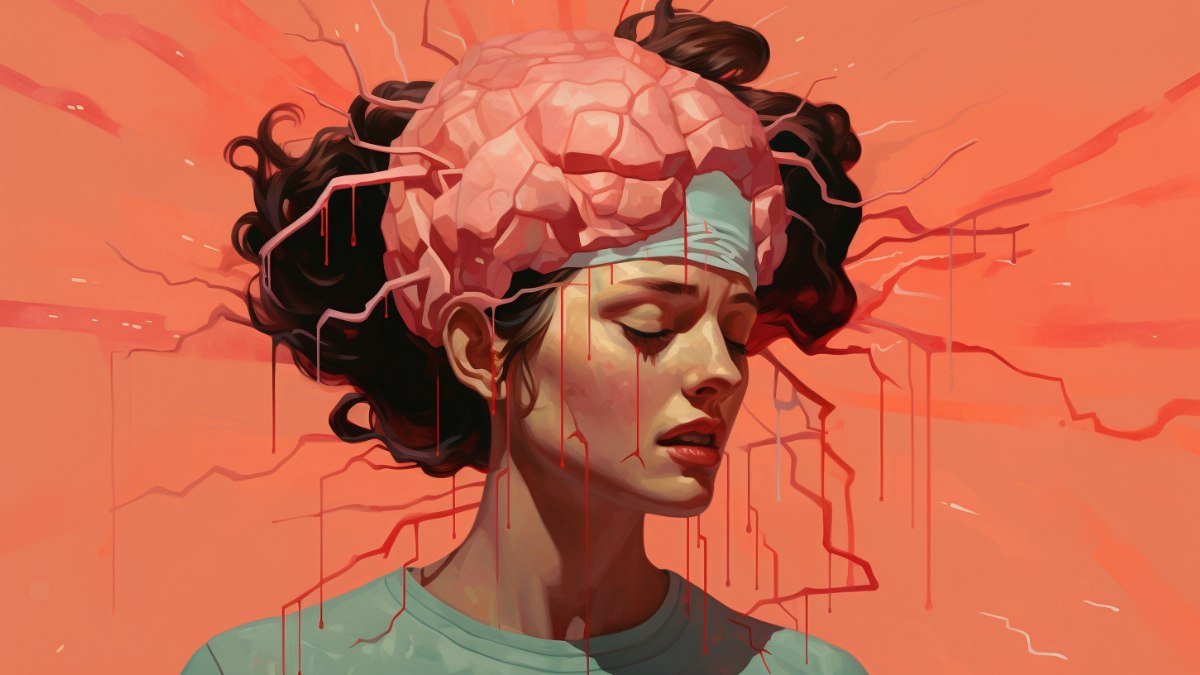Are you worried that you might have a concussion? It’s essential to be vigilant when it comes to head injuries. But how can you determine if you actually have a concussion? Well, let me introduce you to the “Do I Have Concussion Quiz,” a valuable tool that can help you assess your symptoms and gauge the likelihood of a concussion.
Picture this: you’re playing a friendly game of soccer when suddenly you collide with another player, head-on. Ouch! That impact can leave you dazed and confused, wondering if you’ve suffered a concussion. The “Do I Have Concussion Quiz” is designed to shed light on this very question.
This quiz acts as a self-assessment tool, providing a series of questions about your symptoms and experiences following a head injury. By answering honestly, you’ll gain insight into whether or not a concussion is probable. Remember, accuracy is crucial here, so try to recall and describe your symptoms as accurately as possible.
Think of the “Do I Have Concussion Quiz” as a trusted friend, guiding you through the process of self-diagnosis. It prompts you with queries such as: Do you have a persistent headache? Are you experiencing nausea or vomiting? Do you feel disoriented or have trouble concentrating? These questions are carefully crafted to cover common signs and symptoms of a concussion.
As you progress through the quiz, remember that it doesn’t replace a professional medical evaluation. If you score high on the quiz or have any doubts whatsoever, it’s imperative to seek medical attention. A healthcare provider can conduct a thorough examination and provide an accurate diagnosis.
So, if you find yourself in a situation where you suspect a concussion, turn to the “Do I Have Concussion Quiz.” It’s a helpful resource that can provide initial guidance and empower you to make informed decisions about your health. Remember, early detection and proper treatment are key to ensuring a swift recovery when it comes to concussions.
No matter the sport or activity, always prioritize your safety and well-being. Take care of your head, and if you suspect a concussion, don’t hesitate to seek professional medical advice.
Understanding Concussion: Signs and Symptoms
Concussions are a common type of traumatic brain injury that can occur as a result of a blow to the head, a fall, or any other impact that causes the brain to move rapidly inside the skull. It’s crucial to recognize the signs and symptoms of a concussion to ensure timely and appropriate medical attention. In this article, we will delve into the details of understanding concussions, including their signs and symptoms.
One of the most prominent signs of a concussion is a headache. It may start immediately after the injury or develop in the following hours or days. The intensity of the headache can vary from mild to severe, and it may be accompanied by feelings of pressure or aching in the head.
Another key symptom is dizziness or a feeling of being off-balance. Individuals who have sustained a concussion often experience unsteadiness, difficulty maintaining balance, or bouts of vertigo. This sensation can make everyday activities challenging and increase the risk of falls.
Concussions can also affect cognitive function. People with concussions may have trouble concentrating, remembering things, or making decisions. They may feel mentally foggy, disoriented, or confused about their surroundings. These cognitive impairments can significantly impact daily life and should not be taken lightly.
In addition to cognitive changes, concussions can lead to emotional and behavioral alterations. Mood swings, irritability, anxiety, and even depression are common among individuals recovering from a concussion. Changes in sleep patterns, such as insomnia or excessive sleeping, may also occur.
Physical symptoms are another essential aspect to consider. Nausea and vomiting, sensitivity to light or noise, blurred vision, and ringing in the ears are frequently reported by those with concussions. Fatigue and a general feeling of sluggishness are also common, hindering one’s ability to perform regular activities.
It’s worth noting that these signs and symptoms may not appear immediately after the injury. In some cases, they may manifest hours or even days later. This delayed onset makes it essential for individuals to monitor their condition closely and seek medical attention if any of these indicators become evident.
understanding the signs and symptoms of a concussion is crucial for early detection and appropriate management. Headaches, dizziness, cognitive changes, emotional alterations, and physical symptoms are all potential indications of a concussion. By recognizing these warning signs, individuals can take the necessary steps to ensure their well-being and recovery.
Assessing Head Injury: Do I Have a Concussion?
Title: Assessing Head Injury: Do I Have a Concussion?
When it comes to head injuries, one of the most common concerns is whether or not there is a concussion. A concussion is a mild traumatic brain injury that can occur after a blow to the head or a violent shaking of the head and upper body. It’s essential to understand the signs and symptoms associated with concussions to assess if you might have one.
One key indicator of a possible concussion is the presence of physical symptoms. These can include headaches, dizziness, nausea, vomiting, and sensitivity to light or noise. Paying close attention to your body and recognizing any unusual sensations can help you identify if there’s a chance you have sustained a concussion.
Another aspect to consider is cognitive symptoms. Concussions can affect your ability to think clearly and concentrate. You may experience memory problems, difficulty focusing, or feel mentally foggy. If you find yourself struggling with these cognitive functions following a head injury, it could be an indication of a concussion.
Emotional changes are also common in individuals with concussions. Mood swings, irritability, anxiety, and depression can all arise as a result of the brain injury. If you notice sudden shifts in your emotional state or feel more emotionally fragile than usual, it’s worth considering the possibility of a concussion.
It’s important to note that some symptoms may not appear immediately after the head injury. They can take hours or even days to manifest fully. Therefore, it’s crucial to monitor your condition closely over time and seek medical attention if any concerning symptoms develop.
assessing whether you have a concussion requires careful observation of various symptoms. Physical signs like headaches and dizziness, cognitive difficulties such as memory problems, and emotional changes like mood swings can all help determine if a concussion may be present. Remember, if you suspect you have a concussion, it’s vital to consult a healthcare professional for proper evaluation and guidance. Your well-being and recovery should always be the top priority when evaluating head injuries.
Concussion Self-Evaluation: Am I at Risk?
Have you ever wondered if you’re at risk of experiencing a concussion? It’s an important question, especially if you engage in activities that could potentially lead to head injuries. In this article, we will explore a concussion self-evaluation and help you understand the signs and symptoms to watch out for.
Concussions are mild traumatic brain injuries that can occur due to a blow or jolt to the head. They can happen during sports, accidents, falls, or any situation where your head is impacted. Assessing your risk of a concussion involves recognizing the factors that increase the likelihood of experiencing one.
Firstly, consider your activity level. Are you involved in contact sports like football, rugby, or boxing? These sports carry a higher risk of concussions due to the nature of physical contact involved. However, it’s essential to remember that concussions can also happen in non-contact sports such as soccer, gymnastics, or even cycling if a fall occurs.
Next, think about your lifestyle. Are you prone to engaging in risky behaviors? Activities such as skateboarding, skiing, or mountain biking have inherent risks that may result in head injuries. Even everyday tasks like driving or walking on icy surfaces can increase the chances of accidents, leading to concussions.
Another aspect to consider is your medical history. Have you had a previous concussion? Having experienced a concussion in the past makes you more susceptible to future ones. Additionally, certain medical conditions, such as epilepsy or migraines, can increase your vulnerability to concussions.
Now, let’s focus on the symptoms. Do you frequently experience headaches, dizziness, or difficulty concentrating? These are common signs of a concussion. Other indicators include nausea, confusion, sensitivity to light or noise, and changes in sleep patterns.

Remember, this self-evaluation is not a substitute for professional medical advice. If you suspect you have a concussion or are concerned about your risk, it’s crucial to consult a healthcare professional. They can provide a proper diagnosis and guide you through the necessary steps for recovery.
assessing your risk of a concussion involves evaluating factors such as your activity level, lifestyle choices, and medical history, and recognizing common symptoms. By understanding these aspects and seeking appropriate care, you can better protect yourself from potential head injuries. Stay safe, be aware, and prioritize your well-being in all your activities.
Recognizing the Effects of Concussion
Title: Recognizing the Effects of Concussion
Introduction: Have you ever wondered about the impact of a concussion on our bodies? It’s crucial to understand the effects of this traumatic brain injury, as it can have far-reaching consequences. Let’s delve into the intricate world of concussions and explore their various effects.
The Cognitive Maze: A concussion affects our cognitive abilities, leading to a maze of challenges. Memory lapses, difficulty concentrating, and feeling mentally foggy are everyday experiences after a concussion. Once effortless tasks may become arduous, leaving individuals frustrated. The brain’s delicate network needs healing time, allowing these cognitive functions to return to normal gradually.
Emotional Rollercoaster: Imagine riding an emotional rollercoaster, where highs and lows become unpredictable. Concussions often disrupt emotional stability, causing mood swings, irritability, and even depression. The chemical balance in the brain is disturbed, affecting how we regulate emotions. It’s essential to offer support and understanding to those experiencing these emotional whirlwinds.
Physical Hurdles: Concussions not only impact the mind but also manifest physically. Headaches, dizziness, and nausea are frequent companions during the recovery process. Our senses may become hypersensitive, making light and noise overwhelming. Simple everyday tasks like reading or watching TV can trigger discomfort, adding another layer of complexity to the healing journey.
Sleep Disturbances: Sleep, which is essential for our overall well-being, often becomes disrupted after a concussion. Insomnia, excessive sleepiness, or changes in sleep patterns are common occurrences. This lack of restorative sleep hampers the brain’s ability to repair itself, prolonging the recovery process. Establishing a consistent sleep routine and creating a calming sleep environment can aid in restoring healthy sleep patterns.
Conclusion: Recognizing the effects of a concussion is vital for providing appropriate care and support. From cognitive challenges to emotional turbulence, physical hindrances, and sleep disturbances, the impact of a concussion goes beyond mere physical injury. By understanding these effects, we can better empathize with those on the road to recovery and ensure they receive the necessary resources to heal and thrive once again.










